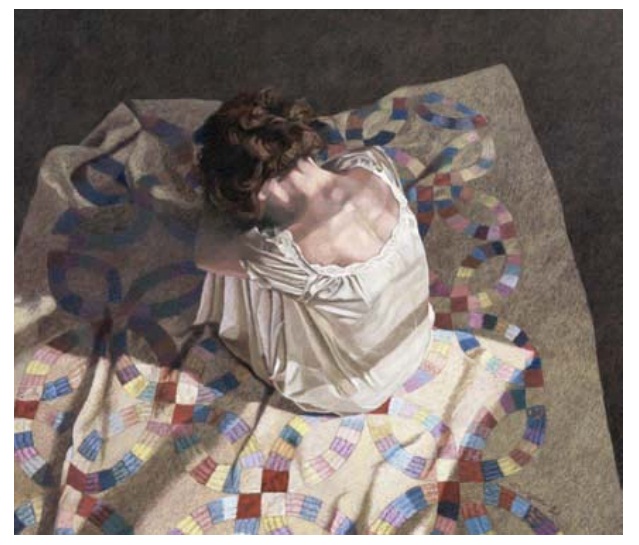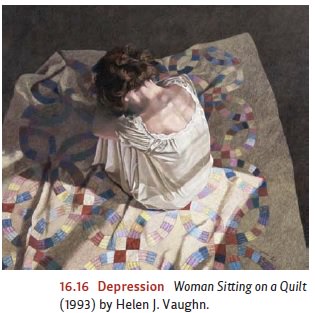Chapter: Psychology: Psychopathology
Mood Disorders: Depression

Depression
Depression involves feelings of sadness,
hopelessness, and broad apathy about life; thedepressed person loses interest
in eating, hobbies, sex, and, for that matter, almost everything else. Of
course, everyone has these feelings at one point or another, espe-cially after
some difficult event, such as sickness or the death of a friend, the end of a
relationship, a significant career failure, and so on. But diagnosable
depression is dif-ferent, distinguished by both its severity and duration. In
fact, the DSM suggests a diag-nosis
of depression only if the feelings of sadness have lasted at least 2 weeks and
are accompanied by other symptoms such as insomnia and feelings of
worthlessness.
Depression
is one of the most common mental disorders, with a lifetime prevalence of 7 to
12% in men and 20 to 25% in women (Kessler et al., 2005; Figure 16.16). It is
not clear why women are more likely to become depressed than men, but one
crucial factor seems to be women’s greater use of maladaptive forms of
rumination—which involve repetitively turning emotional difficulties over and
over in their mind (Nolen-Hoeksema, Wisco, & Lyubomirsky, 2008; Treynor,
Gonzalez, & Nolen-Hoeksema, 2003).

In his
memoir Darkness Visible (1990), the
novelist William Styron
(1925–2006) provided a portrait of depression:
All sense of hope vanished, along with the idea of a futurity; my brain, in thrall to its outlaw hormones, had become less an organ of thought than an instrument registering, minute by minute, varying degrees of its own suffering. The mornings themselves were becoming bad now as I wandered about lethargic . . . but afternoons were still the worst, when I’d feel the horror, like some poisonous fogbank, roll in upon my mind, forcing me into bed. There I would lie for as long as six hours, stuporous and virtually paralyzed, gazing at the ceiling and waiting for that moment of evening when, mysteriously, the crucifixion would ease up just enough to allow me to force down some food and then, like an automaton, seek an hour or two of sleep again.
Many
people with depression experience considerable anxiety, and about 20% suf-fer
from psychotic delusions—unshakable false beliefs. Some are variations on the
theme of worthlessness: “It would be better if I had not been born. . . . I am
the most inferior person in the world”. Other delusions concern guilt about an
unspeakable, unpardonable sin, and some patients report hearing the devil tell
them that they will burn in hell for eternity (Andreasen & Black, 1996).
Whatever the mani-festation, depressions with psychotic features are more
severe, less responsive to treat-ment, and more likely to recur (Coryell,
1996).
Specific
cognitive deficits, including disrupted attention and working memory, also
accompany severe depression. Moreover, depressed patients often exhibit
physical manifestations that can include a loss of appetite and weight,
weakness, fatigue, poor bowel functioning, sleep disorders, and lack of
interest in sex. It is as if both bodily and psychic batteries have run down
completely.
Depression
is not tied to any particular age or life stage. It is most common in
ado-lescence through middle adulthood, but depression can also emerge in
children and in the elderly (Garber & Horowitz, 2002; Kessler, Keller,
& Wittchen, 2001). Depressed adolescents show most of the symptoms we have
described, but some of their symp-toms may come in distinctly teenage form.
Their despair often leads them to substance abuse; their apathy about life
shows up in the number of classes they miss; their irritability emerges as
belligerence and defiance. To be sure, all these behaviors can occur without
depression, but any or all of them, together with other symptoms of depression,
can indicate profound emotional problems.
Related Topics